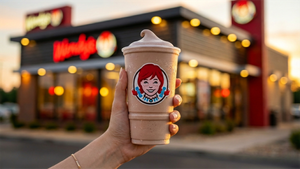
In the turbulent waters of a market downturn, investors traditionally seek refuge in "defensive" stocks – companies whose products and services remain in demand regardless of the economic climate. Consumer staples, such as food, beverages, and household goods, are often perceived as prime examples. However, the recent performance of Molson Coors Beverage Company (NYSE: TAP) offers a compelling case study challenging this conventional wisdom, demonstrating that even within seemingly safe sectors, certain stocks can significantly lag the broader market and their peers.
Molson Coors, a household name in the beverage industry, has experienced notable struggles during recent periods of economic contraction and market volatility. Its stock performance has not only underperformed the broader S&P 500 during significant downturns but has also trailed behind other consumer staples companies, forcing a re-evaluation of what truly constitutes a defensive investment in today's complex financial landscape. The company's unique exposure to specific market dynamics, coupled with evolving consumer preferences, highlights that a sector classification alone is insufficient to guarantee resilience.
Molson Coors' Lagging Performance: A Deep Dive into Market Vulnerabilities
The notion of Molson Coors as a steadfast defensive play has been thoroughly tested and found wanting during recent market stresses. The initial shock of the COVID-19 pandemic in March 2020 saw the company's stock plummet by 21% in that month alone, while the S&P 500 dropped by 12.5%. By early April 2020, Molson Coors was down 30% year-to-date, contrasting sharply with the S&P 500's 24% decline. This trajectory pushed the stock to a 10-year low by July 2020, having shed over 40% of its value since its February high, even as the S&P 500 had recovered substantially.
A key factor in this underperformance was Molson Coors' significant reliance on "on-premise" sales channels, including bars, restaurants, and entertainment venues. The widespread closures and restrictions during the pandemic decimated these revenue streams. In Q1 2020, Molson Coors reported an 8.7% decrease in net sales, driven by volume declines and an estimated $31.5 million in keg sales returns. The company also registered a net loss of $117 million and a 32.7% decrease in non-GAAP EPS, painting a grim picture of immediate financial impact.
While 2022 saw some recovery in underlying income and an 8.5% increase in Q1 net sales, Molson Coors still faced considerable headwinds. Soaring inflationary pressures led to a 29.3% increase in the cost of goods sold (COGS) per hectoliter. The company also recorded a substantial $845.0 million goodwill impairment charge in Q4 2022, signaling a significant re-assessment of asset values. More recently, in 2025, Molson Coors stock dropped 22.5% and declined 18.7% over the past 52 weeks, underperforming the Nasdaq Food & Beverage ETF (FTXG), which dipped 7.9% year-to-date and 16.7% over the past year. This sustained underperformance underscores deeper, ongoing challenges beyond just cyclical market downturns.
The Shifting Tides: Winners and Losers in the Beverage Market
Molson Coors' struggles highlight broader vulnerabilities within the traditional beer market, creating a dynamic landscape of potential winners and losers. Companies heavily invested in the "on-premise" sector, like Molson Coors, bore the brunt of pandemic-related closures and continue to face challenges from evolving social habits. Conversely, those with stronger footholds in "off-premise" sales (supermarkets, liquor stores) and diversified portfolios, particularly in premium segments, spirits, or rapidly growing categories like hard seltzers and non-alcoholic beverages, have shown greater resilience.
Competitors like Anheuser-Busch InBev (NYSE: BUD) or Constellation Brands (NYSE: STZ), with their strong premium import portfolios (e.g., Modelo, Corona for STZ) and diversified offerings, may be better positioned to navigate consumer shifts towards higher-value products or alternative drink categories. While the research didn't explicitly detail their comparative performance to Molson Coors, the general trend indicates that companies with more agile product innovation and less reliance on traditional, declining segments tend to fare better. Even within the beer category, consumers during downturns may "trade down" to cheaper options or "trade up" to affordable luxuries, depending on their perception of value and quality. Molson Coors' historical positioning, with less exposure to the premium segment in the U.S., has made it particularly vulnerable to these shifts.
Wider Significance: Beyond the Pint Glass
Molson Coors' journey through recent market downturns offers a critical lens through which to view broader industry trends and the evolving definition of a "defensive" stock. The alcoholic beverage market, while often considered somewhat recession-proof due to its "affordable luxury" status, is far from immune to economic pressures and profound shifts in consumer behavior.
One significant trend is the pronounced shift from on-premise to at-home consumption during economic contractions. While this might boost off-premise sales for some, it fundamentally alters revenue structures and profitability for brewers like Molson Coors, which rely on the higher margins of draft beer and bar sales. Moreover, the industry faces an overarching trend of declining overall beer consumption in many mature markets, compounded by a pivot towards spirits, wine, and a burgeoning interest in non-alcoholic alternatives. Data from New Zealand, for instance, showed a 4.4% decrease in total beer volume available for consumption in 2023, with only 0% alcohol beers seeing significant growth.
Inflationary pressures, particularly rising costs for inputs like aluminum, have also squeezed profit margins across the board. Molson Coors' gross margin fell from 39.4% in 2021 to 38.8% (TTM), and net margin also declined. High debt levels further exacerbate these vulnerabilities; Molson Coors reported net debt of $6.9 billion in Q1 2022, with a net debt to underlying EBITDA ratio of 3.28 times. This financial leverage can make a company less resilient during periods of economic uncertainty. Historically, truly defensive consumer staples like Procter & Gamble (NYSE: PG) or Walmart (NYSE: WMT) have demonstrated more consistent performance during market crashes, offering lower volatility and risk due to the absolute necessity of their products, a characteristic Molson Coors has struggled to consistently embody.
What Comes Next: Navigating a Complex Future
Looking ahead, Molson Coors faces a critical juncture. The company must continue to strategically pivot to adapt to evolving consumer tastes and market dynamics. This includes sustained investment in product innovation, particularly in higher-growth categories like hard seltzers, premium beers, and non-alcoholic options, where it has historically had less exposure. Success in these areas will be crucial for revenue diversification and margin improvement. The company's ongoing efforts to premiumize its portfolio and appeal to a broader demographic will be key to reversing its lagging performance.
Potential strategic adaptations also include optimizing its distribution channels to better balance on-premise and off-premise sales, ensuring resilience against future disruptions. Furthermore, managing its debt levels and controlling input costs will be paramount to improving profitability and financial stability. For investors, the coming months will reveal the effectiveness of Molson Coors' strategic initiatives and its ability to compete in a rapidly changing beverage landscape. The market will be watching for signs of sustained volume growth, margin expansion, and a stronger balance sheet.
Comprehensive Wrap-up: Re-evaluating Defensive Plays
Molson Coors' performance during recent market downturns serves as a powerful reminder that the definition of a "defensive" stock is not static. While operating within the consumer staples sector, the company's specific vulnerabilities to on-premise sales disruptions, shifting consumer preferences away from traditional beer, and persistent inflationary pressures have undermined its perceived defensive qualities. Its stock has shown a tendency to underperform both the broader market and the consumer staples sector during periods of economic contraction, challenging the simplistic notion that all consumer staples offer refuge.
Moving forward, investors must adopt a more nuanced approach, scrutinizing not just the sector but also the specific industry dynamics, product portfolio, consumer trends, and financial health of individual companies. For Molson Coors, the path to sustained growth and improved market perception lies in successful innovation, effective cost management, and a robust strategy to meet the demands of a diverse and evolving consumer base. The market will continue to assess whether Molson Coors can truly transform into a more resilient investment, capable of weathering future economic storms with greater stability.
This content is intended for informational purposes only and is not financial advice





